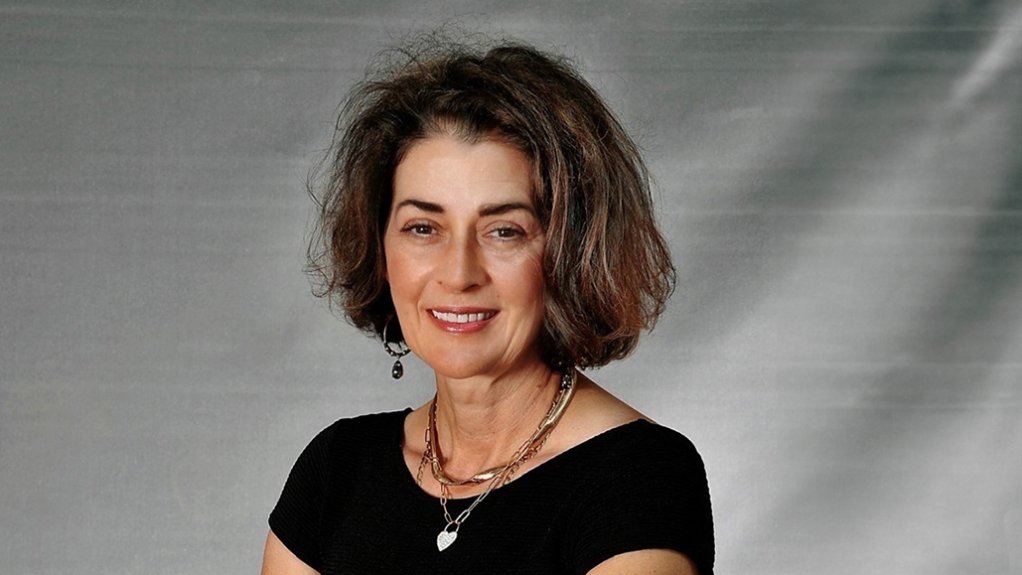Logistics progress is evident in growing political maturity, fostering positive change
Progress is being made in improving South Africa’s logistics, with a growing political maturity emerging in some critical areas, fostering positive change, boosting confidence and introducing new dynamics, says logistics industry organisation Southern Africa Freight Forwarders Association (SAAFF) CEO Dr Juanita Maree.
Policy reforms are unlocking new opportunities, opening the way for some of the national institutions to deliver improved operational performance as the nation continues to work towards stabilising the economy.
The Presidency has renewed the mandate of the National Logistics Crisis Committee (NLCC) for this year. This illustrates that the crisis in logistics continues, emphasising the need for sustained focus on finding solutions through public-private consultation and government’s commitment to strategic cross-sector collaboration, she says.
The extended period in-mission for the NLCC also serves as recognition of the tangible, good outcomes this collaborative consultative model is delivering to the nation, she adds.
“Opening critical projects to private-sector participation is essential to the transformation. The democratisation of energy production for national consumption after years of poor performance finally put an end to loadshedding. It is notable this was done under South African management, leadership, South African expertise and oversight.”
South Africa and the Government of National Unity (GNU) must apply the critical lessons learned over the past year to build resilience, avoid mistakes and safeguard the future of South Africa, Maree says.
Further, in search of growth and development, the introduction of concessionary opportunities opens the way to new dynamics and funding models, enabling critical projects for private-sector participation, which are fundamental ingredients in the transformation away from an inefficient monopolised service platform holding back progress.
The introduction of concessionary and third-party opportunities to the business sector cuts across two major operations at the heart of the logistics sector, namely the management and operation of South Africa’s Pier 2 KwaZulu-Natal main port and the opening to third-party rail operators of the opportunity to bid under the terms of the Transnet Network Statement.
The drafting of the legal platforms to serve third-party agreements takes centre stage, as terms and conditions will underscore the rate of success for these ambitious programmes, she adds.
“The legal basis serves as key administrative tools to steer working arrangements for concessionary and third-party opportunities in areas fundamental to job creation, economic growth and the achievement of South Africa’s National Development Plan and, indeed, the fixing of the ongoing national logistics crisis,” says Maree.
Meanwhile, the devastation caused by State capture was a phenomenon fuelled by weak leadership, systemic corruption, and propped up by a void of governance, transparency and accountability, she highlights.
State capture, followed by looting of public funds during the Covid-19 pandemic, alongside the systemic abuse of well-intended programmes, such as Preferential Procurement, remain matters of concern today, and also present the possibility for serial behaviour as the country enters a new era, she states.
“The country is on a growth trajectory, but there is no room for error. The lessons learned demand absolute transparency and active engagement from South Africa’s public- and private-sector experts.
“It is essential that all concessionary and third-party contractual terms are thoroughly consulted with subject matter experts and with active, participating stakeholders, particularly in areas such as port management and the restoration of the rail freight system.”
Additionally, while the so-called honeymoon period for the GNU may be over, meaningful progress made at the foundational level must be acknowledged. The collaborative spirit in play is driving these improvements, which are crucial to an economic recovery and the future of South Africa.
Policy reform becomes a solution only by virtue of the integrity and accuracy of its implementation - by how it is effectively applied to deliver the desired outcomes, Maree emphasises.
The logistics sector plays a pivotal role in South Africa’s economy, its impact extending across the broader Southern African Development Community region and beyond.
“However, South Africa faces some of the highest logistics costs in the world, adding to inflationary pressures, placing strain on livelihoods. Optimising logistics is crucial for fostering sustainable growth and ensuring long-term economic stability, and as the foundation of the future we aim to build,” she says.
Article Enquiry
Email Article
Save Article
Feedback
To advertise email advertising@creamermedia.co.za or click here
Press Office
Announcements
What's On
Subscribe to improve your user experience...
Option 1 (equivalent of R125 a month):
Receive a weekly copy of Creamer Media's Engineering News & Mining Weekly magazine
(print copy for those in South Africa and e-magazine for those outside of South Africa)
Receive daily email newsletters
Access to full search results
Access archive of magazine back copies
Access to Projects in Progress
Access to ONE Research Report of your choice in PDF format
Option 2 (equivalent of R375 a month):
All benefits from Option 1
PLUS
Access to Creamer Media's Research Channel Africa for ALL Research Reports, in PDF format, on various industrial and mining sectors
including Electricity; Water; Energy Transition; Hydrogen; Roads, Rail and Ports; Coal; Gold; Platinum; Battery Metals; etc.
Already a subscriber?
Forgotten your password?
Receive weekly copy of Creamer Media's Engineering News & Mining Weekly magazine (print copy for those in South Africa and e-magazine for those outside of South Africa)
➕
Recieve daily email newsletters
➕
Access to full search results
➕
Access archive of magazine back copies
➕
Access to Projects in Progress
➕
Access to ONE Research Report of your choice in PDF format
RESEARCH CHANNEL AFRICA
R4500 (equivalent of R375 a month)
SUBSCRIBEAll benefits from Option 1
➕
Access to Creamer Media's Research Channel Africa for ALL Research Reports on various industrial and mining sectors, in PDF format, including on:
Electricity
➕
Water
➕
Energy Transition
➕
Hydrogen
➕
Roads, Rail and Ports
➕
Coal
➕
Gold
➕
Platinum
➕
Battery Metals
➕
etc.
Receive all benefits from Option 1 or Option 2 delivered to numerous people at your company
➕
Multiple User names and Passwords for simultaneous log-ins
➕
Intranet integration access to all in your organisation



















